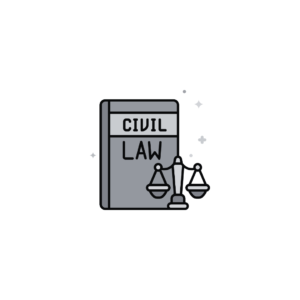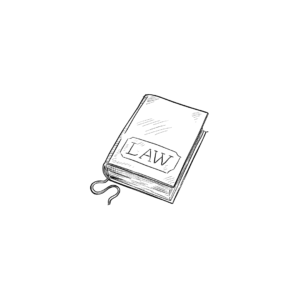Description
Curriculum for LLM in Intellectual Property Rights
An LLM (Master of Laws) in Intellectual Property Rights (IPR) is designed to give students comprehensive knowledge and understanding of intellectual property laws and practices. While specific programs may vary, the following core subjects are commonly included in the curriculum:
Introduction to Intellectual Property Law
Overview of the different types of intellectual property (IP), including patents, trademarks, copyrights, and trade secrets.
Understanding the role of IP in commerce and innovation.
Patent Law
In-depth study of the laws relating to the protection of inventions.
Examination of the patent application process, patentability criteria, and enforcement of patent rights.
Trademark Law
Exploration of the legal frameworks surrounding trademarks, including registration, protection, and litigation issues.
Analysis of trademark infringement, dilution, and the significance of brand identity.
Copyright Law
Examination of the laws governing copyright, including original works of authorship, rights of creators, and limitations like fair use.
Discussion of copyright registration and enforcement mechanisms.
Trade Secrets and Confidential Information
Study of laws protecting trade secrets and the implications of corporate espionage.
Exploration of legal remedies for misappropriation of trade secrets.
International Intellectual Property Law
Overview of international treaties and agreements affecting IPR, such as the TRIPS Agreement, Berne Convention, and Paris Convention.
Examination of cross-border IP issues and harmonization of IP laws.
IP and Competition Law
Exploration of the relationships and conflicts between IP law and antitrust/competition law.
Analysis of how IP rights can influence market competition and consumer welfare.
Emerging Issues in Intellectual Property
Discussion of contemporary challenges in IPR, such as digital piracy, biotechnology patents, and artificial intelligence innovations.
Exploration of the impact of technology on IP rights and enforcement.
IP Litigation and Dispute Resolution
Examination of legal practices related to IP litigation, including strategies for enforcing and defending IP rights.
Understanding alternative dispute resolution methods in IP cases, such as mediation and arbitration.
Policy Issues in Intellectual Property
Analysis of the public policy implications of IP laws, including access to medicines, cultural heritage, and innovation promotion.
Discussion of the role of IP in economic development and global trade.
Research Methodology in Intellectual Property Law
Development of research skills specific to intellectual property topics, preparing students to undertake independent research projects or a thesis.
Capstone Project or Thesis
Opportunity for students to engage in a significant research project related to a specific area of interest in intellectual property law.
Career Opportunities After Completing an LLM in Intellectual Property Rights
Graduates with an LLM in Intellectual Property Rights can pursue various rewarding career paths, including:
Intellectual Property Lawyer
Practicing law in firms that specialize in IP, providing legal advice on protecting and enforcing IP rights.
Patent Attorney
Specializing in patent law, representing clients in the patent application process and litigation regarding patent infringement.
Trademark Attorney
Focusing on trademark registration, protection, and enforcement, helping businesses navigate the complexities of brand protection.
Copyright Lawyer
Advising clients on copyright issues, negotiating licensing agreements, and representing clients in copyright litigation.
IP Litigation Specialist
Representing clients in disputes related to IP infringement, including litigation in federal and state courts.
In-House Counsel
Working as legal advisors for corporations, managing IP portfolios, and ensuring compliance with IP laws.
IP Consultant
Providing strategic advice to businesses on IP management, including risk assessment and enforcement strategies.
Policy Advisor in IP
Working for governmental or non-governmental organizations to shape IP policy and advocate for legislative reforms.
Academic or Researcher
Teaching intellectual property law at the university level or conducting research in areas related to IP.
Corporate Compliance Officer
Ensuring that companies comply with IP regulations and ethical standards in their business practices.
Technology Transfer Specialist
Assisting universities or research institutions in licensing and commercializing intellectual property developed through research.
Nonprofit or Advocacy Group Roles
Working with organizations focused on promoting access to knowledge, cultural heritage, and fair use in intellectual property.
Conclusion
An LLM in Intellectual Property Rights equips graduates with the essential knowledge and skills to navigate the complex landscape of intellectual property law. The program opens up diverse career opportunities in law, policy, consulting, and academia, with significant implications for innovation, creativity, and business. If you have any more specific questions about this field, institutions offering such programs, or career guidance, feel free to ask!









